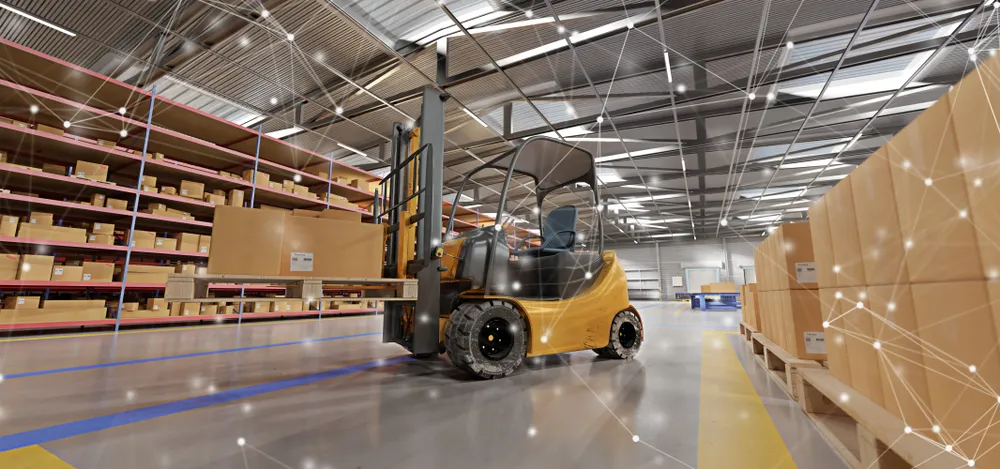Beyond Initial Costs: An In-Depth Analysis of Rugged Computers vs. Consumer-Grade Devices in Industrial Environments
Posted on 19/09/2024

In the demanding world of industrial operations, the technology you choose can significantly impact productivity, safety, and profitability. While consumer-grade devices may seem cost-effective initially, they often fall short when faced with harsh industrial conditions. This article provides an in-depth comparison between rugged computers and consumer-grade devices, highlighting why durability, reliability, and long-term value make rugged devices the superior choice for industrial applications.
1. Durability and Build Quality
Rugged Panel PCs
- Engineered for Harsh Environments:
- Extreme Temperatures: Operate reliably in temperatures ranging from -40°C to +85°C.
- Ingress Protection (IP) Ratings: Often rated IP65 or higher, providing dust-tight and water-resistant protection.
- Shock and Vibration Resistance: Compliant with standards like MIL-STD-810G/H, ensuring resilience against mechanical shocks and vibrations.
- Robust Materials: Constructed with industrial-grade components, reinforced enclosures, and protective coatings.
Consumer-Grade Devices
- Designed for Controlled Environments:
- Limited Temperature Range: Optimal operation typically between 0°C and 35°C.
- Minimal Ingress Protection: Low or no IP rating, making them vulnerable to dust and moisture.
- Fragile Construction: Susceptible to damage from drops, shocks, and vibrations.
- Standard Materials: Use of consumer-grade plastics and components not suited for industrial stress.
Implications
- Longevity: Rugged devices are built to last in challenging conditions, reducing the frequency of replacements.
- Maintenance: Lower risk of damage translates to fewer repairs and less maintenance downtime.
2. Total Cost of Ownership (TCO)
Initial Investment vs. Long-Term Costs
- Consumer-Grade Devices:
- Lower Upfront Cost: Appealing initial price point.
- Higher Long-Term Expenses: Frequent failures lead to repair costs, replacements, and operational downtime.
- Rugged Panel PCs:
- Higher Upfront Cost: Reflects the specialized engineering and durable materials.
- Reduced Lifetime Costs: Longevity and reliability result in lower maintenance expenses and fewer disruptions.
Factors Affecting TCO
- Downtime Costs: Operational halts due to device failure can be costly in terms of lost productivity and delayed projects.
- Maintenance and Repairs: Rugged devices require less frequent servicing, saving labor and parts costs over time.
- Asset Lifespan: The extended service life of rugged devices spreads the initial investment over a longer period, improving ROI.
Conclusion on TCO
Investing in rugged panel PCs can lead to significant cost savings over the device's lifetime, outweighing the initial higher purchase price.
3. Performance and Customization
Rugged Panel PCs
- High-Performance Components: Equipped with industrial-grade CPUs, GPUs, and memory to handle demanding applications.
- Customization Options:
- Modular Design: Allows for hardware customization to meet specific requirements.
- Specialized Interfaces: Support for legacy ports (e.g., RS-232, RS-485) and industrial protocols.
- Enhanced Features:
- Sunlight-Readable Displays: For outdoor use with high brightness and anti-glare technology.
- Touchscreen Technologies: Options for resistive or capacitive touchscreens, operable with gloves or styluses.
Consumer-Grade Devices
- Standard Components: Suitable for general-purpose computing but may struggle with industrial software demands.
- Limited Customization: Fixed configurations with few or no options for hardware modifications.
- Basic Features: Lacking specialized functionalities required for industrial environments.
Implications
- Operational Efficiency: Rugged devices can be tailored to optimize workflow and integrate seamlessly with existing systems.
- Future-Proofing: Customizable hardware allows for upgrades and scalability as operational needs evolve.
4. Environmental and Operational Challenges
 |
Temperature Extremes
- Rugged Devices: Thermal management systems (e.g., heat sinks, cooling fans) ensure consistent performance.
- Consumer Devices: Risk of overheating or failing to start in non-ideal temperatures.
Dust and Moisture Exposure
- Rugged Devices: Sealed enclosures prevent intrusion, protecting internal components.
- Consumer Devices: Vulnerable to dust accumulation and moisture ingress, leading to corrosion and short circuits.
Vibration and Shock
- Rugged Devices: Built to absorb and withstand physical impacts and continuous vibrations.
- Consumer Devices: Components can become dislodged or damaged under stress.
Electrical Interference
- Rugged Devices: Shielded against electromagnetic interference (EMI), ensuring stable operation near heavy machinery.
- Consumer Devices: Susceptible to EMI, which can cause data corruption or system crashes.
Implications
- Reliability: Rugged devices maintain operational integrity, reducing unexpected downtimes.
- Safety: Lower risk of device failure that could compromise safety protocols or monitoring systems.
5. Compliance and Regulatory Standards
Rugged Panel PCs
- Industry Certifications:
- Safety Standards: Compliance with UL, CE, and FCC regulations.
- Environmental Standards: RoHS and WEEE directives for hazardous substances and waste management.
- Specialized Certifications: ATEX or IECEx for explosive atmospheres; necessary in industries like mining or petrochemicals.
Consumer-Grade Devices
- Basic Compliance: Meet general consumer safety standards but lack industrial-specific certifications.
- Non-Compliance Risks: Using uncertified devices in regulated environments can lead to legal penalties and safety hazards.
Implications
- Legal Compliance: Ensures adherence to industry regulations, avoiding fines and legal issues.
- Operational Integrity: Certified devices meet rigorous testing, ensuring they perform as expected in critical applications.
6. Security Features
Rugged Panel PCs
- Hardware Security:
- Trusted Platform Module (TPM): Provides hardware-based encryption and authentication.
- Secure Boot Processes: Protects against unauthorized firmware or software at startup.
- Physical Security:
- Reinforced Design: Built to minimize the risk of unauthorized access.
- Durable Construction: Resists physical intrusion attempts.
Consumer-Grade Devices
- Limited Security Features: Basic password protection and software-based security.
- Vulnerabilities: Easier to tamper with or hack, posing risks in sensitive industrial operations.
Implications
- Data Protection: Essential for safeguarding proprietary information and operational data.
- Enhanced Security: Helps strengthen the protection of critical systems.
7. Integration with Industrial Systems
 |
Rugged Panel PCs
- Compatibility:
- Support for Industrial Systems: Facilitates integration with existing equipment.
- Peripheral Integration: Connect seamlessly with sensors, PLCs, and other industrial equipment.
- Software Support:
- Real-Time Operating Systems (RTOS): For applications requiring precise timing and reliability.
- Custom Software Applications: Ability to run specialized industrial software without compatibility issues.
Consumer-Grade Devices
- Limited Compatibility: May lack necessary ports or protocol support for industrial equipment.
- Software Limitations: Consumer operating systems may not support industrial applications or real-time processing.
Implications
- Operational Efficiency: Enhanced integration reduces complexity and streamlines processes.
- Reduced Integration Costs: Out-of-the-box compatibility minimizes the need for additional adapters or middleware.
8. Future-Proofing and Technological Advancement
 |
Rugged Panel PCs
- Advanced Connectivity:
- 5G and Wi-Fi 6: Support for the latest wireless technologies for faster data transmission.
- IoT and Edge Computing Ready: Capable of handling data processing at the source for real-time analytics.
- Scalability:
- Modular Upgrades: Ability to update components as technology evolves without replacing the entire device.
- Software Updates:
- Long-Term Support: Manufacturers often provide extended support cycles suitable for industrial deployment lifespans.
Consumer-Grade Devices
- Limited Upgrade Paths: Often require complete replacement to benefit from new technologies.
- Short Support Cycles: Frequent software updates may not be compatible with industrial systems, and support is discontinued sooner.
Implications
- Investment Protection: Rugged devices remain relevant longer, maximizing ROI.
- Competitive Advantage: Keeping pace with technological advancements enhances operational capabilities.
Conclusion
In industrial environments, where conditions are challenging, and operational efficiency is paramount, the choice of computing hardware has profound implications. Rugged panel PCs, with their superior durability, reliability, and adaptability, offer significant advantages over consumer-grade devices. While the initial investment is higher, the long-term benefits in terms of reduced downtime, lower maintenance costs, compliance with regulations, and enhanced productivity make rugged devices the smarter choice for serious industrial applications.
Investing in the right technology is investing in the future of your operations. Contact us today to learn more about how our rugged panel PCs can meet your specific industrial needs and help drive your business forward.
